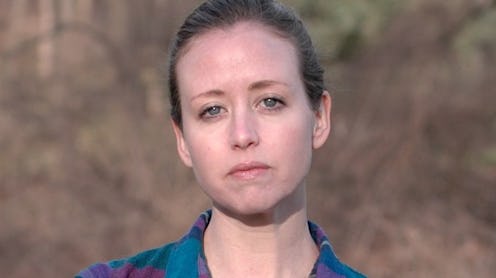Books
Q&A: van den Berg: "Fiction thrives off disaster"

The writerly risks that Laura van den Berg swallows are bold. Her dazzling new short story collection The Isle of Youth shows her — not to mention her protagonists' — penchant for risk-taking. In one story, van den Berg takes a grieving sister to Antarctica. In another, she sends an uncertain newlywed to Patagonia. And in the title story, van den Berg reunites estranged identical twins so the wild one can fly to to the Cuban Isle of Youth while the other sister assumes her identity and learns the deep trouble her sister's in.
Throughout, van den Berg matches these adventures' stunningly depicted landscapes with emotional texture. The reader accompanies the women while they search for clues to emotional mysteries — like love and marriage — and help with concrete questions — the fate of a disappeared magician, or the details of a sketchy private investigation case.
We heard from Laura on these seven unusual stories and the women they depict, as well as the challenges and triumphs of taking writerly risks.
BUSTLE: Each of the women in these stories are so complex and well-sculpted. Although they're all unique, they all share a sort of despondent mystery. Which of these characters was most challenging for you to render?
LAURA VAN DEN BERG: Thank you for saying so! The unnamed narrator in “I Looked For You, I Called Your Name” was particularly challenging. She’s a newlywed struggling with some major doubt about her own choices and also about the nature of human connection, of love — the exact nature of this doubt is murky to the narrator, which is always tricky: How do you present a clear portrait of a character mired in confusion? So for a while she had a thin, hazy feeling as a character. It took me some time to understand the roots of her doubt, and to strike a better balance between the fog of ambiguity and the sharpness of clarity.
A line that especially stuck with me was when Lee from "Antarctica" considers "the grief of wanting to know the unknowable." The word "grief" felt especially choice here, given that she's grieving her brother, but also this unavailable information.
Yes, absolutely. In the immediate sense, Lee is grieving her brother, but also the road untaken: what would have changed if she told her brother what she knew about Eve? What would have changed if she had never gone along with Eve’s plan at the hospital? It’s the grief of looking back along the path you have committed to treading and realizing that a terrible miscalculation has been made — and, worse still, you have acknowledged this miscalculation far too late to do anything about it.
And then you have Julia and her sister, who try to unearth mysteries through PI work. You depict women who want to get to the bottom of things, who want some truth. Are you like this in your writing?
I aspire to be, for sure. In Isle I was interested in using external mystery — a crime, say, or a missing person — as a means of accessing the internal mysteries, and the truths that exist at the core of those mysteries, of the characters. And while these characters were busy searching for their answers, I was searching for the truth inside each of them; that was one way I knew a story had reached its natural ending, when a true thing about the narrator, previously concealed to me, was uncovered.
Tell me about times when you felt like each twin in "The Isle of Youth." Are they halves of a whole?
I am interested in the way fiction allows you to take a familiar thing and exaggerate it into strangeness; the twins embody oppositional points on the continuum of personality — the friction between their differences is, to my eye, part of what gives the story its energy and shape. And we all contain multitudes, you know? There are times when, like the narrator, I am drawn toward order and rule-following, but there are also times when, like Sylvia, I am drawn toward wildness and irresponsibility — the transgressive impulse.
Have any of these stories or characters taught you about yourself?
I’m not sure any single character has taught me a particular lesson about myself, but the overarching preoccupations that emerged as I worked on Isle — mystery, deception, Florida, where I’m from, to a certain extent — certainly let me know what I’m struggling to understand about the world and my relationship to it. But one very specific thing I did learn from the “Greatest Escape” is that I cannot kill an animal on the page. In an earlier version of the story, the rabbit, Merlin, was going to meet an unfortunate end during a rehearsal. In hindsight, I don’t think that would have been the right action for the story at all, but I’ll never know for sure because I couldn’t bring myself to write the scene! Have one character shoot a bank teller in the face? Have another character jump from a balcony? No problem. Killing a rabbit? Forget it.
These women have not-great relationships with the men in their lives. For you, is this a note of realism, or of characterization?
I would say more characterization than realism. Fiction thrives off disaster after all, off of applying as much external and internal pressure to a character as you can; the not-so-hot relationships is a part of that pressure in Isle. I also see fiction as a chance to write toward your fears, so if I fear experiencing a particular kind of disconnection in a relationship, fiction is a chance to move toward that fear, to explore it, to face it in a sense — and living it, briefly, as a fiction usually makes me all the more determined to try and avoid it in my actual life.
Image: Peter Yoon